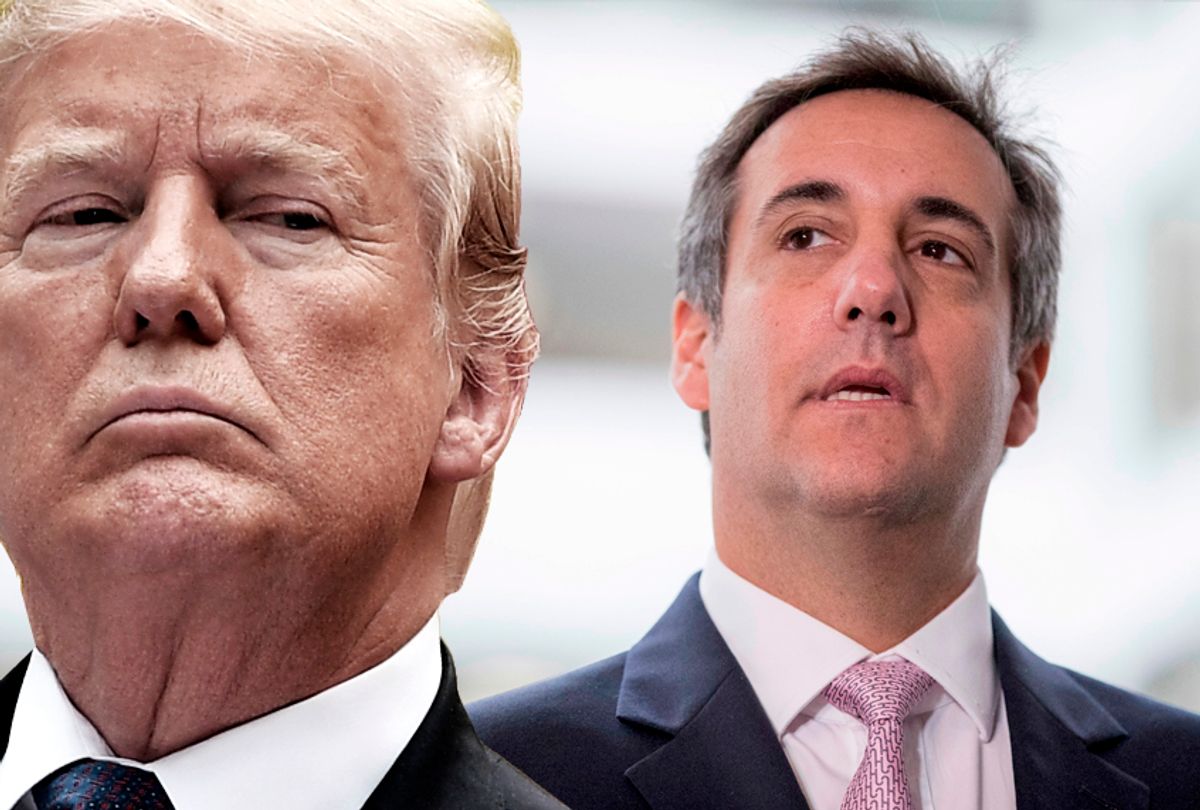Michael Cohen, the attorney who spent many years as President Donald Trump's personal lawyer and media attack dog, told lawmakers during a closed-door hearing earlier this year that the president's attorney, Jay Sekulow, had instructed him to lie to Congress about when negotiations to construct a Trump Tower in Moscow ended, the Washington Post reported Monday.
Cohen falsely claimed in a 2017 statement to Congress that the real estate development in Moscow ended in January 2016. He later admitted that discussions on the project extended into June of that presidential election year — well after Trump became the presumptive nominee of the Republican Party. Cohen is currently serving three years in prison for crimes, including lying to Congress, campaign finance violations and tax evasion.
Democrats in the House of Representatives are now investigating whether Sekulow or other attorneys representing Trump shaped or edited Cohen's 2017 testimony to Congress. Court documents revealed Cohen made the false statements to "minimize links between the Moscow Project and [Trump]" and to "give the false impression that the Moscow Project ended before 'the Iowa caucus and . . . the very first primary,' in hopes of limiting the ongoing Russia investigations."
"We're trying to find out whether anyone participated in the false testimony that Cohen gave to this committee," House Intelligence Committee Chairman Adam Schiff, D-Calif., told the Post.
Jane Serene Raskin and Patrick Strawbridge, attorneys for Sekulow, told the newspaper that "Cohen's alleged statements are more of the same from him and confirm the observations of prosecutors in the Southern District of New York that Cohen's 'instinct to blame others is strong.'"
"That this or any committee would rely on the word of Michael Cohen for any purpose — much less to try and pierce the attorney-client privilege and discover confidential communications of four respected lawyers — defies logic, well-established law and common sense," they added.
The Trump Tower project in Moscow, which was ultimately aborted, came under intense scrutiny during special counsel Robert Mueller's nearly two-year investigation into Russian interference in the 2016 presidential election and alleged collusion between the Trump campaign and Russia.
Cohen's claims led Schiff to request information from Sekulow; Alan Futerfas, Donald Trump Jr.'s lawyer; Alan Garten, an attorney for the Trump Organization; and Abbe Lowell, Jared Kushner and Ivanka Trump's lawyer.
The four lawyers declined to comply with Schiff's document requests or submit to interviews, claiming the information requested would breach attorney client privilege.
"The privilege doesn't apply if it’s being used to conceal a crime or a fraud," Schiff told the Post in response. "And if the attorneys were conferring amongst themselves and Mr. Cohen about a false statement they were going to make to our committee, there's no privilege that protects that kind of conduct."
In his public testimony to the House Oversight Committee in January, Cohen claimed that Trump's personal lawyers, including Sekulow, "reviewed and edited" his 2017 statement to Congress. Sekulow called Cohen's allegation "completely false."
The allegations levied during Cohen's testimony surface amid escalating tensions between the White House and House Democrats over investigations on issues including foreign election interference, alleged mismanagement in the White House security clearance procedures, the president's finances and his immigration policies. Democrats have accused the Trump administration of stonewalling or flat-out ignoring their requests for documents and information.
Mueller did not find evidence to conclude Trump or members of his presidential campaign conspired with Russia during the 2016 election cycle, but he identified ten episodes of possible obstruction of justice by the president.
Since the Department of Justice released a version of Mueller's 448-report in March, the Trump administration has faced a barrage of subpoenas, demands to testify before a host of congressional panels and letters seeking a flurry of documents. The White House has often ignored congressional requests for documents and witnesses, claiming that the demands amount to an unconstitutional infringement of the president's powers.

Shares